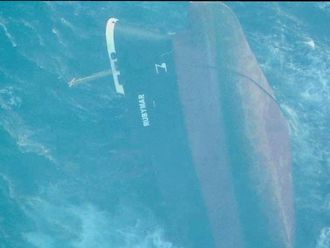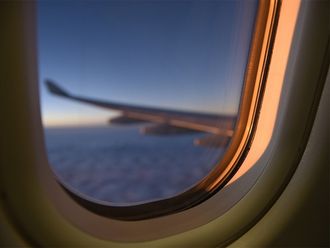Sana'a: Al Qaida has moved from Saudi Arabia to Yemen because of religious extremism, according to a number of analysts and experts interviewed by Gulf News.
Graduates of the Saudi-financed Salafi schools, known for their emphasis on religion, which are spread throughout the poverty-stricken country can be easily recruited by extremist groups, they say.
"Graduates of these schools are ready to be Al Qaida members," said Saeed Obaid, chairman of Al Jemhi Centre for Research and Studies, a think-tank group which specialises in Al Qaida affairs.
He mentioned, in particular, the first ever Dammaj centre in Sa'ada, founded by the late Salafi cleric Mukbel Al Wadi, who graduated from the Saudi Wahabi schools. There are nearly 4,000 such schools in existence and many attempt to imitate the Dammaj school which was founded in the late 1980s.
"The leader of Al Qaida in Yemen, Nasser Al Wahaishi graduated from such a school," said Obaid, who himself studied for a while in the Dammaj school, before becoming a researcher and the author of the book Al Qaida in Yemen.
Under spotlight
"The leader of Al Qaida in Mudia, Jameel Al Ambori, who was killed in a security operation last March, graduated from the Dammaj centre, as did many other prominent members."
Yemen, last week, came under the spotlight again, after two parcel bombs, en route to the US from Yemen, were discovered at airports in Dubai and London.
Earlier this year, the Nigerian terrorist, Omar Farouq, was involved in a failed terrorist plot to bomb an airplane as it flew over the US. Another reason Yemen has become the centre of Al Qaida is because of its leader Anwar Al Awlaki, the Yemen-American extremist cleric, wanted by the CIA for his involvement in terrorist plots.
Al Awlaki is known to be the leader of Al Qaida in Yemen although he has not yet declared himself a member. Likewise Al Qaida has not yet admitted he is a member. "He is very smart not to declare himself in Al Qaida, and this is the only thing he has not done yet, because it's not in his interest now, nor in the interest of Al Qaida," Obaid said.
"The world looks at Al Qaida as an absolute evil and he doesn't want to have people think he is Al Qaida. It's like a person calling himself a peacemaker, while he's killing and fighting," Obaid said.
Other observers note that Yemen has become one of the fields of the global war on Al Qaida. "What's happening now is that the world is a real war zone, with all its styles and tricks and Yemen is one of the fields of this war," said Ali Saif Hassan, chairman of the political forum for development, a local NGO.
Implementing
Hassan believes that Al Qaida is implementing this war on two levels: the level of the original Al Qaida, which focuses on major international projects and strategies, and on a second level: the newly recruited members of Al Qaida who implement local operations like killing security and military soldiers.
The stronger Al Qaida becomes in Yemen, the more worried the world gets, especially Western nations.
Given that Al Qaida is getting stronger, the government is increasingly unable to fight it alone and the situation is becoming more and more dangerous. Some in Yemen claim that the incident of the parcel bombs last week, was simply a ploy for the US and its allies to justify striking at Al Qaida directly.
"There is something being done to justify American strikes against Yemen," said Nabeel Al Bukairi, a researcher who specialises in Al Qaida. "Why was Saudi Arabia the first to know about the packages? Does this mean Al Qaida has been penetrated by the Saudi intelligence?" he wondered.












